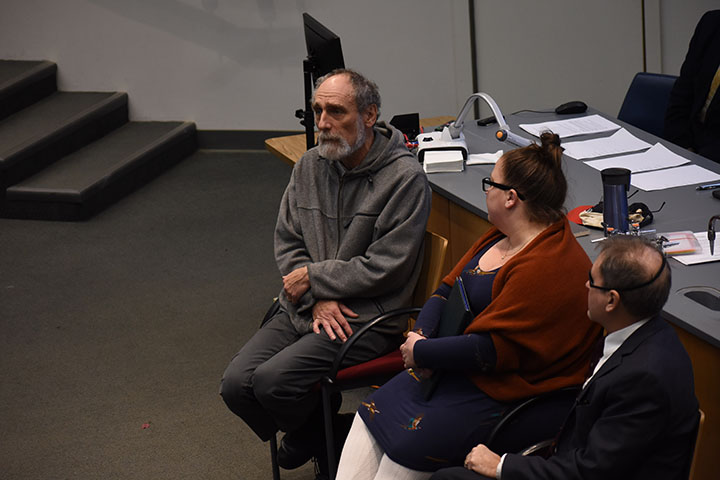Impeachment is an important mechanism of American politics, yet for some, the process of impeachment is hard to fully grasp and comprehend. This week, the Observer sought to explain the intricacies behind impeachment and explore what our community thinks of the current impeachment inquiry.
“Impeachment is, kind of like, putting the president in prison for doing a crime,” Emma Paulson, sophomore, said.
Lauryn Tassell, sophomore, defines impeachment as: “Finding the president guilty or not guilty of a federal offense, or any type of injustice that goes over the power a president is allowed to have.”
Franko Orszag, a student at Alleman High School, said, “Impeachment basically tests the president or leader on whether or not they’re doing something wrong.”
These three students had a general idea of impeachment, however their initial responses when asked what it was were of uncertainty.
“I only know what I learned in my entry civics class,” Orszag said. “I know that it starts in the House, then is sent to the Senate, and if they disagree, the process happens again.”
College students have the ability to vote, and with this responsibility, should know the processes of government action.
“It’s not to embarrass or even place a bad wrap on a certain person we don’t like,” Tassell said. “It’s more like, we need to make sure that people in charge of this country are abiding by the rules that every citizen has to follow and isn’t becoming overpowered, or like a tyrant in any way.”
On Tuesday, Oct. 29, the Political Science department held a panel of political science and history professors to discuss the current impeachment process. The panel included Dr. Lendol Calder, Dr. David Dehnel, Dr. Maruice Mangum and Dr. Jasmine Noelle Yarish. Nearly 50 students sat in on the panel as the professors helped answer questions about the impeachment inquiry and following procedures.
Calder and the other panelists emphasized that the whole exercise of impeachment is not a criminal trial, but a political mechanism.
“Impeachment is our constitutional procedure for dealing with potential tyrants and other, for lack of a better word, nincompoops, so I do encourage students to grow more aware of impeachment and more about who gets impeached due to what or why they did something,” Calder said. “Look into past impeachments, such as Bill Clinton, the whole Nixon scandal – just be aware of why Congress and other politicians suggest impeachment and how it protects us from a president that violates the norms. Familiarize yourself with the purpose of impeachment before you make a decision on whether or not you support it.”
Dehnel was asked if the House were to impeach the president does the Senate have to hold a trail? According to Dehnel there are no written rules on having to carry out a trial.
“Even if you think it is constitutionally obligatory on them, how would you even enforce it? So I think [Mitch] McConnell [the head of the majority party, Republican, in the Senate] will certainly read public opinion and if there is a sharp public reaction to the Senate failing to do a hearing then he’ll do it,” Dehnel said. “I think he is leaving his options open.”
Dehnel mentioned that Nancy Pelosi, the speaker of the house, waited on going forward with the impeachment inquiry until after the Ukraine call came forward where there was a more direct involvement of the President.
Despite Pelosi not opening up the official inquiry until this point, initial calls for impeachment erupted after the Mueller Report showed ten possible obstruction of justice episodes. The special council did not include their opinion on whether or not the potential crimes warranted action.
“That is what they are working on in the investigation and they testify to that effect using his powers of the office to ask the Ukraines to investigate the Bidens,” Dehnel said. “It doesn’t transcend partisan politics. I don’t think the founders expected it to transcend politics either. Although they had a different understanding of party politics in their day. I think the impeachment is bound to originate with the opposition.”
A view gaining traction with the public is that there isn’t a point in carrying out the impeachment process because the election is almost here.
“I initially started out with the same view,” Calder admits. “However when you think about it, if you don’t start the idea of impeachment, or bring the possibility up, future generations could look back and say ‘Why didn’t anyone try to do something?’ If a president, or any other political figure, is trampling on our nation’s rules and regulations, ignoring the amendments and constitutional rights of our people, we need to step up in order to prevent an essential tyrant from taking over. That’s why impeachment is so important, it’s a way for our government to protect our nation from losing its democratic ways.”











































































































